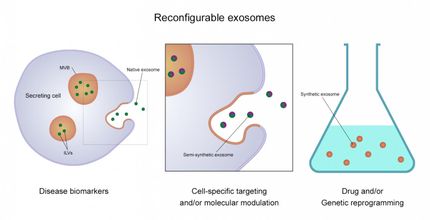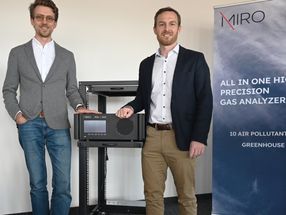MDxHealth's ConfirmMDx Genes Detect Clinically Significant Prostate Cancer
MDxHealth SA announced that data demonstrating the prognostic value of its ConfirmMDx® for prostate cancer genes and technology was presented at the ASCO Genitourinary Cancers Symposium 2015. The data support the ability to predict the presence of clinically significant cancer in biopsy-negative patients based on the DNA hypermethylation of the biomarkers in the ConfirmMDx test.
ConfirmMDx for Prostate Cancer is an epigenetic test that was developed and validated to rule out the presence of undetected cancer in men with benign prostate biopsy results. This is achieved by measuring the intensity of DNA hypermethylation of the three ConfirmMDx biomarkers in histologically benign tissue. This study was designed to evaluate if those patients testing positive for ConfirmMDx could be further stratified for the risk for clinically significant cancer. A total of 102 patients (12 cores per patient), 20 with no cancer, 46 with Gleason score 6 prostate cancer and 36 with Gleason score 7 prostate cancer were tested with the ConfirmMDx test. The results showed that the intensity of the DNA hypermethylation in benign needle biopsy cores is higher in patients with GS7 cancer compared to those with GS6 cancer alone. These findings support the feasibility of an algorithm that is sensitive to the GS of undetected foci of aggressive prostate cancer and could translate into a prognostic score to help stratify patients eligible for active surveillance from those who may benefit from earlier intervention.
"For all three ConfirmMDx biomarkers, we observed a positive correlation between the highest level of DNA hypermethylation in the adjacent benign cores with the cancer cores from the same patient. Interestingly, for each marker, the GS6 cores from the group with clinically significant cancer (GS7) showed significantly higher levels of DNA hypermethylation than the group with only GS6 cancer," reported Sandra M. Gaston PhD, Director of Urological Research at New England Baptist Hospital and Director of the Molecular Biomarkers Research Laboratory in the Department of Pathology and Laboratory Medicine at Tufts Medical Center in Boston. "These results suggest that risk stratification predicting the presence of clinically significant cancer in biopsy-negative patients based on the DNA hypermethylation of the ConfirmMDx genes is feasible."
Organizations
Other news from the department research and development

Get the analytics and lab tech industry in your inbox
From now on, don't miss a thing: Our newsletter for analytics and lab technology brings you up to date every Tuesday. The latest industry news, product highlights and innovations - compact and easy to understand in your inbox. Researched by us so you don't have to.






























































